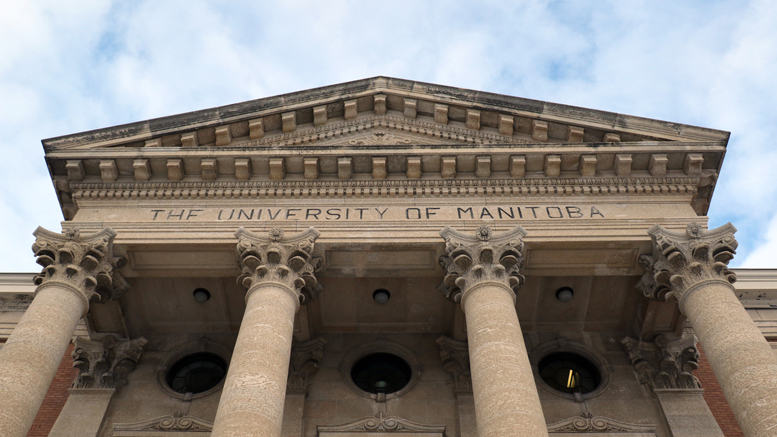The University of Manitoba is projecting a balanced general operating budget for 2017-2018, with a tuition increase capped at the 1.3 per cent rate of inflation the province experienced last year.
The budget was approved by the board of governors in May and includes $648.1 million in revenue, with expenditures amounting to $597.8 million, and net fund transfers that stand at $50.2 million.
For the first time in years, the budget does not mandate that faculties, departments, and other academic groups cut operating costs, which had been a consistent trend over the past three years when departments were made to trim expenses by as much as four per cent.
John Danakas, the University of Manitoba’s executive director of public affairs, said balancing the budget allows for investments in academic units.
“One positive aspect is that investments were possible in all academic units, with increases to baseline funding as well as the fiscal funding,” he said. “They will see increases in funding to make it easier for them to deliver their programs for the students.”
In the operating budget, baseline funding is anticipated ongoing funds, while fiscal funding represents a one-time only cash allocation.
The increase in investments will allow academic units to address issues critical to the university, such as maintaining program quality through faculty and staff renewal, enhancing the student experience by increasing experiential learning, and furthering the university’s commitment to Indigenous achievement, according to a university release.
Danakas said the budget represents the first time in a number of years that baseline funding saw an increase, even as fiscal constraints remain present. The university learned in April that its provincial operating grant for the coming year will be held to 2016-2017 levels.
The provincial grant allocations to the U of M total more than $363.1 million. Overall provincial spending on post-secondary rounds to $704.6 million.
Faculty units will see an increase of more than $12.5 million over last year’s budget. Libraries will see an increase of $430,500.
In the 2016-2017 fiscal year, the U of M cut nearly $11 million from its operating budget. It was the third consecutive year that the university’s budget included cuts, drawing criticism from the student body and faculty.
The faculty and student body at large argued that the university was failing to prioritize education in lieu of capital projects.
Critics of the cuts claimed they resulted in a reduction both in the number of courses offered throughout the academic year and in a number of tenured faculty positions, which combined to force some students to prolong their studies awaiting mandatory credits. The impact was felt to some degree by all departments and programs, regardless of size.
Danakas said the most recent budget also benefited from a public sector wage pause mandated by the province.
“The provincial government requires that there be no increases in salary compensation for two years for public sector employees and there is four-year program of relative pause,” he said. “In compliance with the province, the University of Manitoba didn’t increase salaries and it was able to in its budget invest directly into the faculties.”
The increase in tuition for the fiscal year 2017-2018 is limited to the 1.3 per cent rate of inflation. However, the provincial government passed Bill 31 this spring, which replaces the existing legislation that caps tuition increases at the rate of inflation. Bill 31 allows for tuition hikes of five per cent above inflation each year. This will not come into effect until 2018. The university has signalled that it expects to increase fees.
Tanjit Nagra, president of the University of Manitoba Students’ Union, said she is happy with the budget.
She said she has experienced first-hand how the previous budgets focused on cost-cutting affected programs: slimmer course selections available, and more sessional instructors.
“The budget cuts were quite the strain and it is a fight we have to continue on and lobby for students, especially the international students, as they are not protected under any [tuition] cap,” she said.
Commenting on the expected five per cent increase in tuition for 2018, Nagra observed that the Progressive Conservatives “have a majority government and have said that the cost of education to the province has increased and they want it reflected in the legislation.”
Nagra said she wants to ensure that her advocacy efforts are directed toward the University of Manitoba rather than the provincial government, as the board of governors is ultimately responsible for approving the university budget.
Canadian Federation of Students-Manitoba (CFS-MB) chairperson Carlen Comegan-Ronke said she views Bill 31 as engendering a lack of commitment to post-secondary education on the part of the province.
“It’s no secret that this government has been reducing the deficit on the backs of students and their families, as demonstrated in the recent cut to the tuition fee rebate program and the introduction of Bill 31 [which] will increase tuition and completely deregulate tuition fees,” she said.
She said she believes investing in students and post-secondary education is essential, and said CFS-MB will continue to fight for affordable, accessible, high-quality public education for all.
A trim off the top
The Progressive Conservative leadership has instructed some public sectors to cut management positions by 15 per cent, signalling that these reductions will eventually be sought at post-secondary institutions as well.
The university contends that it remains committed to prudent management of its purse.
Danakas said “the current budget is proof of the fact that the University of Manitoba has been a leader in fiscal prudence and has been cautious in its spending over the past several years, so any cuts to staff along the scope of 15 per cent wouldn’t be in the best interest of the province that the university serves.”


